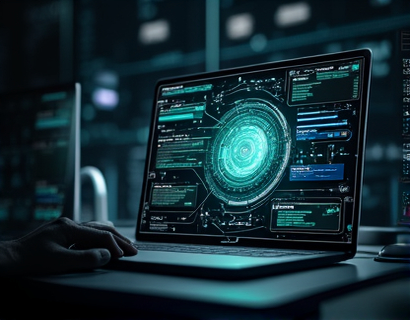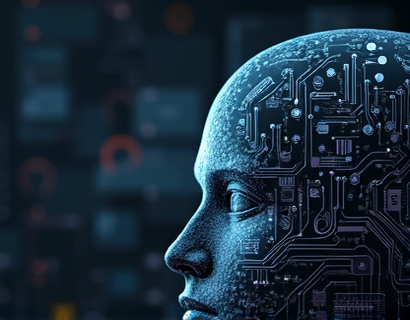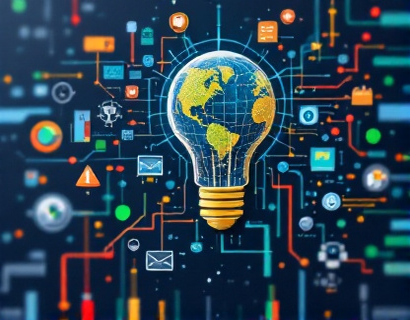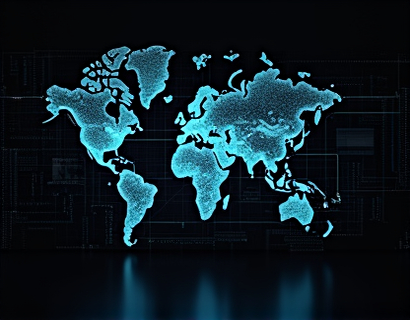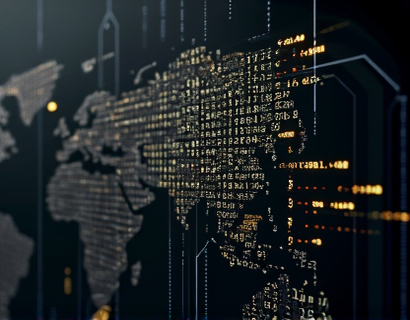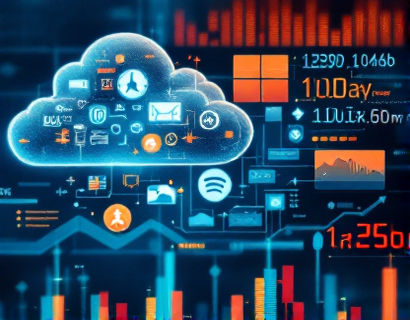AI and Crypto: Transforming Digital Productivity
The integration of Artificial Intelligence (AI) and cryptocurrency is revolutionizing the way we approach digital productivity. This convergence is not just a technological curiosity but a transformative force that is redefining efficiency, task management, and the overall digital experience. As we delve into this topic, it's essential to understand the individual roles of AI and cryptocurrency before exploring how their union is reshaping the digital landscape.
Understanding AI in Digital Productivity
Artificial Intelligence has been a buzzword for decades, but its practical applications in enhancing digital productivity are only now becoming widely recognized. AI refers to the simulation of human intelligence processes by machines, particularly computer systems. These processes include learning (the acquisition of information and rules for using it), reasoning (using rules to reach approximate or definite conclusions), and self-correction. In the context of digital productivity, AI can automate routine tasks, provide intelligent recommendations, and offer insights that help users work more efficiently.
One of the most significant contributions of AI to digital productivity is automation. Repetitive and time-consuming tasks such as data entry, scheduling, and even basic customer support can be automated through AI-driven tools. This not only saves time but also reduces the likelihood of human error. For instance, AI-powered virtual assistants can manage calendars, set reminders, and even draft emails, allowing professionals to focus on higher-value tasks that require human creativity and critical thinking.
Another area where AI shines is in data analysis. AI algorithms can process vast amounts of data quickly and extract meaningful insights. This capability is invaluable in business intelligence, where understanding market trends, customer behavior, and operational efficiencies can lead to strategic decisions that drive growth. AI can also predict future trends based on historical data, enabling proactive rather than reactive decision-making.
The Role of Cryptocurrency in Digital Transformation
Cryptocurrency, often seen as a digital or virtual currency, is a medium of exchange that uses cryptography for security. The most well-known cryptocurrency is Bitcoin, but there are thousands of others, each with unique features and use cases. Beyond being a form of currency, cryptocurrency plays a crucial role in the digital transformation by providing a decentralized, secure, and transparent way to conduct transactions.
One of the key advantages of cryptocurrency is its ability to facilitate peer-to-peer transactions without the need for intermediaries such as banks. This not only reduces transaction costs but also increases the speed and security of financial exchanges. In the context of digital productivity, cryptocurrency can be used to create decentralized applications (dApps) that offer new ways to collaborate, share resources, and monetize digital assets.
Smart contracts, a feature of blockchain technology underlying most cryptocurrencies, automate and enforce contractual obligations without the need for intermediaries. This can streamline business processes, reduce fraud, and ensure transparency. For example, in project management, smart contracts can automatically release payments to contractors once milestones are met, eliminating the need for manual verification and follow-up.
AI and Crypto: A Synergistic Combination
The true power of AI and cryptocurrency is realized when they are combined. This synergy creates a new paradigm for digital productivity, offering solutions that are more intelligent, secure, and efficient. Let's explore some of the ways this convergence is transforming various aspects of digital workflows.
Enhanced Security and Trust
Security is a paramount concern in any digital transaction or data exchange. The combination of AI and cryptocurrency addresses this by providing robust security measures. AI can detect and prevent fraudulent activities by analyzing patterns and identifying anomalies in real-time. For instance, AI-driven security systems can monitor blockchain transactions for suspicious behavior and alert users or automatically take action to mitigate risks.
Cryptocurrency, with its decentralized nature, inherently offers a higher level of security compared to traditional financial systems. When AI is integrated into this ecosystem, the security is further enhanced. Machine learning algorithms can continuously learn from new data, adapting to emerging threats and improving the overall security posture. This is particularly important for businesses handling sensitive information, as it ensures that their digital assets and data are protected against cyber threats.
Intelligent Task Management
AI and cryptocurrency can revolutionize task management by creating smart, autonomous systems that optimize workflows. Imagine a scenario where an AI-powered digital assistant manages your entire project lifecycle, from planning to execution and monitoring. This assistant can use AI to predict potential bottlenecks, allocate resources efficiently, and even negotiate with suppliers or partners using smart contracts on the blockchain.
For example, an AI-driven project management tool could analyze historical data to predict the most efficient allocation of resources for a given task. It could then use cryptocurrency to automatically pay freelancers or vendors based on predefined smart contracts, ensuring timely and transparent payments. This not only streamlines the process but also builds trust among all parties involved, as every transaction is recorded and verifiable on the blockchain.
Personalized Productivity Tools
AI can create highly personalized productivity tools tailored to individual user needs. By analyzing user behavior, preferences, and work patterns, AI can recommend custom workflows, suggest optimizations, and even automate tasks that are specific to each user. This level of personalization is particularly beneficial in a decentralized environment where users have control over their data and tools.
For instance, an AI-powered productivity platform could use machine learning to understand a user's typical daily tasks and create a customized dashboard that prioritizes these tasks based on urgency and importance. It could also integrate with cryptocurrency wallets to manage digital assets, such as tokens or NFTs, related to the user's work, providing a seamless and secure experience.
Decentralized Collaboration
Collaboration is a critical aspect of modern digital productivity, and the combination of AI and cryptocurrency can take it to new heights. Decentralized platforms powered by blockchain can facilitate collaboration without the need for centralized authorities, ensuring that all participants have equal access and control over the project data.
AI can enhance this collaboration by providing intelligent tools for communication, document management, and task coordination. For example, AI-driven chatbots can assist in real-time communication, translating languages, summarizing discussions, and even generating action items based on meeting transcripts. These chatbots can operate on a decentralized network, ensuring that all communication is secure and transparent.
Smart contracts can automate the distribution of credits or rewards among team members based on their contributions, eliminating the need for manual tracking and ensuring fair compensation. This not only boosts morale but also fosters a more collaborative and trust-based working environment.
Challenges and Considerations
While the potential of AI and cryptocurrency in transforming digital productivity is immense, there are several challenges and considerations that need to be addressed. One of the primary concerns is the technical complexity involved in integrating these technologies. Developers and organizations must have a solid understanding of both AI and blockchain to implement solutions effectively.
Another challenge is the regulatory landscape. Cryptocurrencies are still navigating a complex web of regulations across different jurisdictions, and the use of AI in sensitive areas such as data privacy and security is subject to strict guidelines. Organizations must ensure compliance with these regulations to avoid legal issues and maintain user trust.
Additionally, there is the issue of user adoption. For these technologies to be truly transformative, they need to be user-friendly and provide clear benefits that outweigh the learning curve. Education and training programs can help bridge this gap, but it's essential to design solutions that are intuitive and accessible to a broad audience.
Future Prospects
Looking ahead, the integration of AI and cryptocurrency is poised to bring about even more innovative solutions in the realm of digital productivity. As AI algorithms become more advanced, they will be able to handle more complex tasks and provide deeper insights, further enhancing the efficiency of workflows.
Cryptocurrency, with the ongoing development of scalable and user-friendly blockchain platforms, will continue to evolve, making it easier to integrate with AI-powered tools. The rise of decentralized finance (DeFi) and non-fungible tokens (NFTs) is also opening new avenues for monetization and asset management within digital ecosystems.
In conclusion, the convergence of AI and cryptocurrency is not just a technological trend but a fundamental shift in how we approach digital productivity. By leveraging the strengths of both domains, we can create smarter, more secure, and more efficient systems that empower individuals and organizations to achieve their goals with unprecedented ease and effectiveness.










